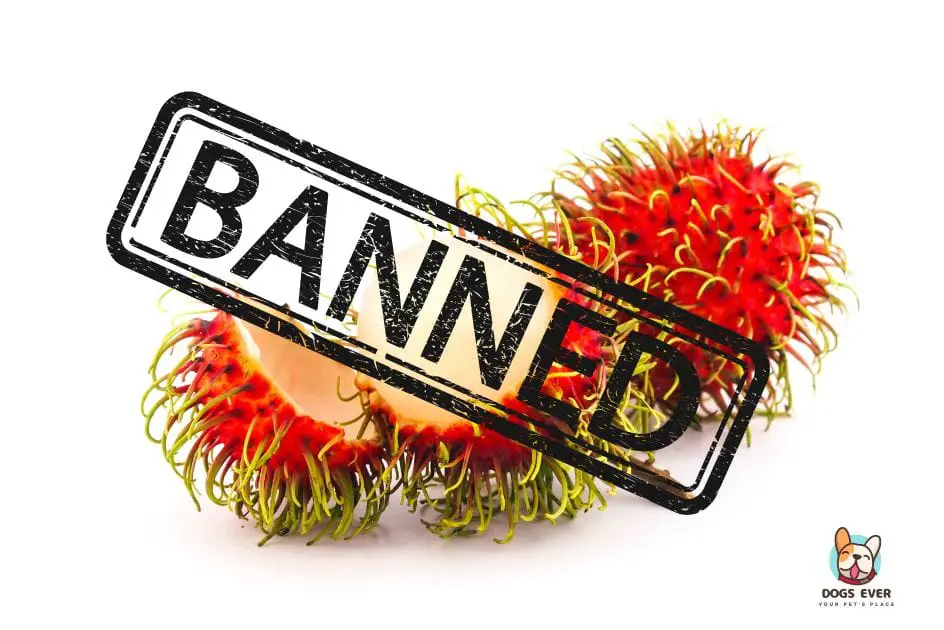· food · 5 min read
Can Dogs Eat Almond Butter? Is it safe for my dog to have almond butter?

Can dogs eat almond butter? Yes, they can as long as it contains the right ingredients and how much almond butter you give your dog. In this post, we will discuss everything you need to know to safely give almond butter to your dog
What is almond butter?
Almond butter is made from ground almonds and can be eaten by humans as a substitute for peanut butter. Almond butter is a good source of protein, fiber, vitamin E, magnesium, and potassium. It also has a lower calorie content than peanut butter.
As with any other nut butter, it is both a great source of energy and good fats but can also lead to obesity if eaten carelessly.
Can dogs have almond butter?
It is okay to give your dog small amounts of almond butter as long as it does not contain any added ingredients such as salt or sugar.
When feeding your dog almond butter, it is important to be mindful of the amount you give them and to check the ingredients list first. If you are unsure about whether or not your dog can safely eat almond butter, it is best to consult with your vet before giving them any at all.
Does almond butter have any benefits for dogs?
Yes, there are a few potential benefits. Almond butter is high in protein and fiber, which are both important nutrients for dogs.
Additionally, almond butter is a good source of vitamin E, magnesium, and potassium.
While these nutrients can be beneficial for dogs, it’s important to only give them a small amount of almond butter at first to make sure they don’t have any negative reactions.
How much almond butter can you give your dog?
It is typically recommended to give your dog a maximum of 1-2 teaspoons of almond butter per day. However, it is always best to speak with your veterinarian before making any changes to your dog’s diet.
Almond butter is generally safe for dogs, but it’s important to make sure that the almond butter doesn’t contain any additives or ingredients that could be harmful to your pet.

What ingredients does almond butter have?
Almond butter is a nutritious and healthy spread that can be enjoyed on toast, crackers or even used in baking. Almond butter is made of ground almonds, which gives it its distinctive and nutty flavor. It also contains a small amount of sugar and salt, as well as a small amount of oil to help keep the almond butter from sticking to the jar.
Almond butter is a good source of protein, fiber, vitamin E, magnesium, and potassium. It also has a lower calorie count than peanut butter - only 160 calories per 2 tablespoons.
Since almond butter doesn’t contain any unhealthy hydrogenated oils, it is a healthier option for those looking for a nutty spread to enjoy. Almond butter can be enjoyed by people with peanut allergies since it does not contain any peanuts.
Are there any ingredients dangerous for dogs?
While almond butter is generally safe for dogs, it’s important to make sure that the almond butter doesn’t contain any additives or ingredients that could be harmful to your pet. Some ingredients that could be dangerous for dogs include chocolate and sugar.
Chocolate
Chocolate is one of the most common ingredients that can be harmful to dogs. Chocolate contains theobromine and caffeine, which are both stimulants that can be dangerous for dogs.
If a dog eats chocolate, it may experience vomiting, diarrhea, excessive thirst, increased urination, panting, hyperactivity, seizures, and even death so dogs can’t eat chocolate.
It’s important to keep chocolate away from dogs and to contact your veterinarian if you think your dog has eaten chocolate.
Sugar
Feeding sugar to a dog can be potentially dangerous, as it can lead to obesity, dental problems and liver disease.
Dogs that consume a lot of sugar can be at risk for obesity, as sugar is high in calories and can easily contribute to weight gain. A dog that is obese is at risk for developing a number of health problems, including heart disease, arthritis, and diabetes.
Sugar can also cause dental problems in dogs. Dogs that consume a lot of sugar are more likely to develop cavities and periodontal disease. For example, dogs can’t eat marshmallows, because they are simply sugar. The same goes for pop tarts, which your dog should also not consume
Lastly, feeding sugar to a dog can also lead to liver disease. The liver is responsible for metabolizing sugars, and when it is overworked it can lead to liver disease. Signs of liver disease in dogs include vomiting, diarrhea, loss of appetite and weight loss.

Recipe: Natural almond butter for dogs
Following I’m sharing with you a recipe for a healthier, homemade almond butter that’s safer for dogs.
Ingredients:
-1 cup of almonds, roasted
-1/4 cup of vegetable or canola oil
-optional: 1 teaspoon honey or sugar
Instructions:
1. Preheat oven to 350 degrees F (175 degrees C).
2. Spread almonds on a baking sheet. Bake for 5 to 10 minutes, stirring occasionally, until lightly browned. Remove from heat and let cool.
3. In a food processor, process cooled almonds with oil until smooth paste forms. If desired, add honey or sugar and continue processing until combined.
4. Transfer almond butter to a covered container and store in the refrigerator for up to 2 weeks
Differences between peanut butter and almond butter
Peanut butter is a popular food for dogs, as it is high in protein and healthy fats. It also has a high-calorie count, making it an excellent source of energy for dogs.
However, peanut butter also contains a high amount of sugar. Too much sugar can lead to dental problems, obesity, and liver disease in dogs.
Almond butter is a healthier alternative to peanut butter. It is lower in sugar and calories and does not contain any unhealthy hydrogenated oils. Almond butter is also a good source of protein, fiber, and vitamins E, magnesium, and potassium.
Due to the health benefits, almond butter can be a good option for people with peanut allergies who want to give their dogs a nutty snack.



